Armenian and Georgian internet users have different perspectives on the effect of social media disinformation and its effect on their respective countries, with a CRRC analysis finding that Armenians are more likely to state that social media has a negative impact on their country.
Disinformation — information that is intended to mislead — has in recent years been a widely-discussed topic globally, particularly in relation to its presence on social media.
An analysis of Caucasus Barometer 2021 data investigated the beliefs of Armenia and Georgia’s internet-using populations regarding the effects of online social media and disinformation on their countries.
The survey asked respondents that use the internet — 81% of Armenia and 73% of Georgia — what effects online social media had on ‘the way things are going’ in their country.
A clear difference was visible between Armenian and Georgian populations’ perceptions of the impact of social media. While around half (52%) of the internet-using Armenian respondents surveyed reported that social media had a mostly negative impact on their country, less than a third (27%) of internet users in Georgia reported feeling the same.
Of those who reported that the internet had a negative impact on their country, a majority in both Armenia (61%) and Georgia (40%) attributed this to disinformation or made-up news. The next most common responses were named by less than 15% of the internet-using population.
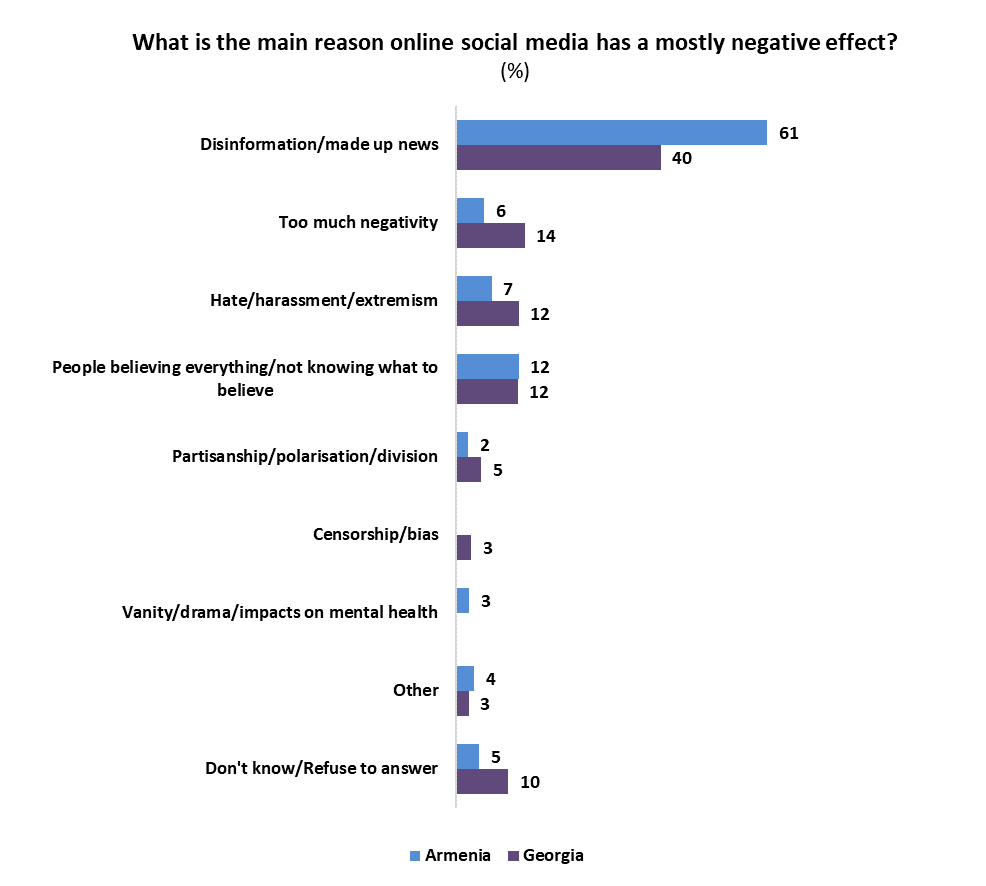
In Georgia, whether or not someone names disinformation varied with ethnicity and sex.
Ethnic Georgians were 41 percentage points more likely to name disinformation compared to ethnic minorities, while men were 12 percentage points more likely to mention disinformation than women.
Other socio-demographic variables such as age, settlement type, education level, employment status, and wealth were not associated with naming disinformation in Georgia.
In Armenia, none of the variables tested were associated with believing that disinformation is the main reason social media has a negative effect.

That people named disinformation as the key negative effect of social media is perhaps unsurprising, considering that, of those who considered the internet to have a negative effect, 87% of the Armenian population surveyed and 59% in Georgia reported that they were worried about the impacts of disinformation on social media.
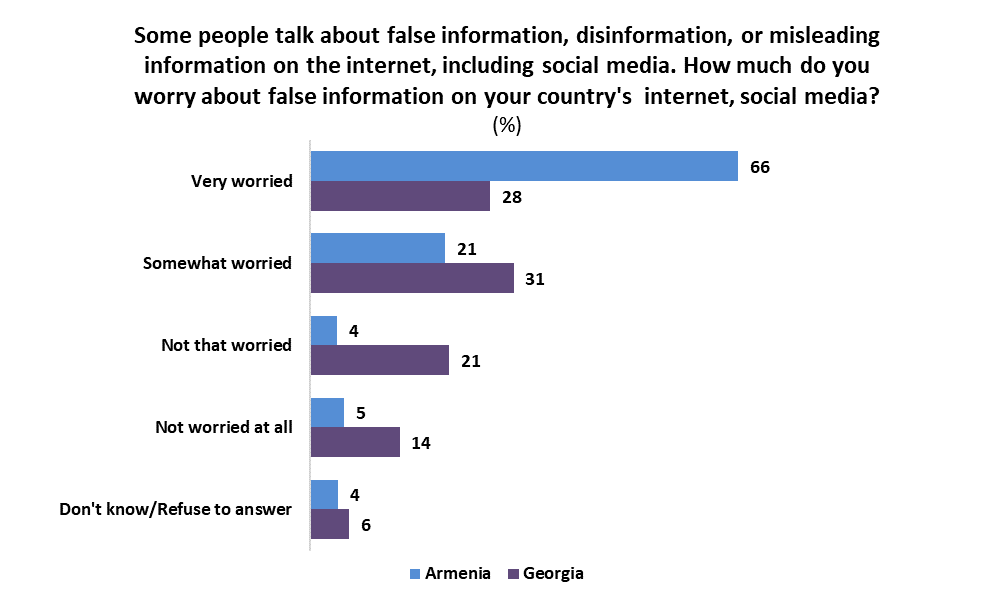
How much people report worrying about disinformation varied with age in Armenia, with people over the age of 34 more likely to be worried than younger people. Sex, settlement type, education level, employment status, and wealth were not associated with worrying about disinformation on Armenia’s internet and social media.
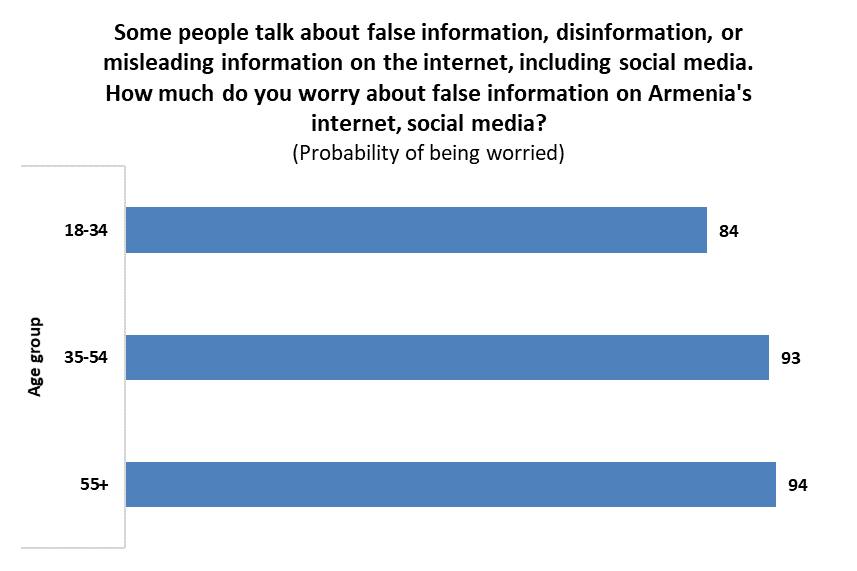
In Georgia, age and settlement type were associated with worrying about disinformation. People over the age of 34 were more likely to worry about disinformation, while people living in rural areas (56%) were less likely to worry about disinformation than people living in urban areas. Other socio-demographic variables such as sex, education level, employment status, and wealth were not associated with whether or not someone is worried about disinformation on Georgia’s internet.
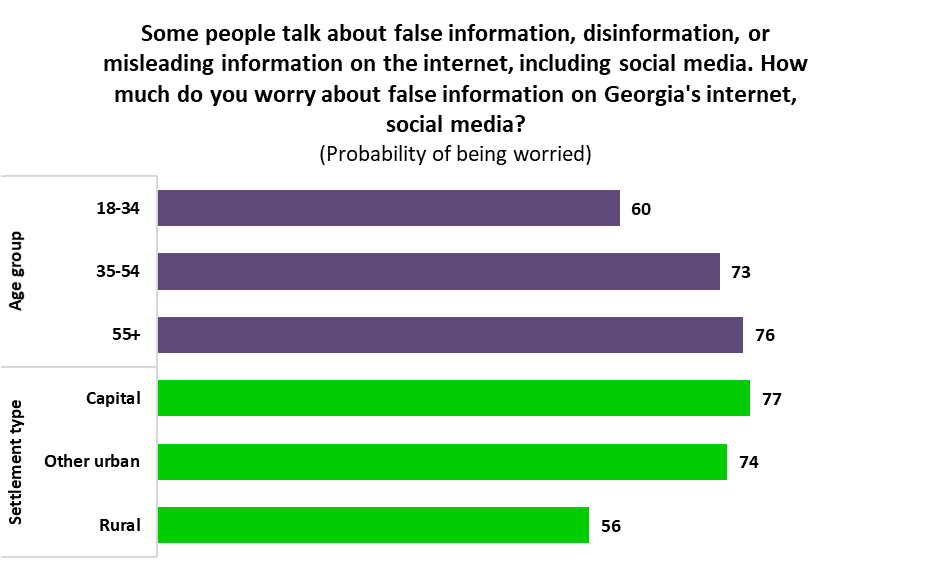
The survey also asked respondents why they think that disinformation is published. The most common reason given was to confuse people and distract them from real problems, which was chosen by 33% of Armenians and 43% of Georgians surveyed. Other common reasons given included pushing a specific political agenda or position, and earning clicks, shares or views. Relatively few of those surveyed in both countries believed that disinformation was used by ‘greater powers for their secret plans’, by those attempting to become influencers, or to entertain people.
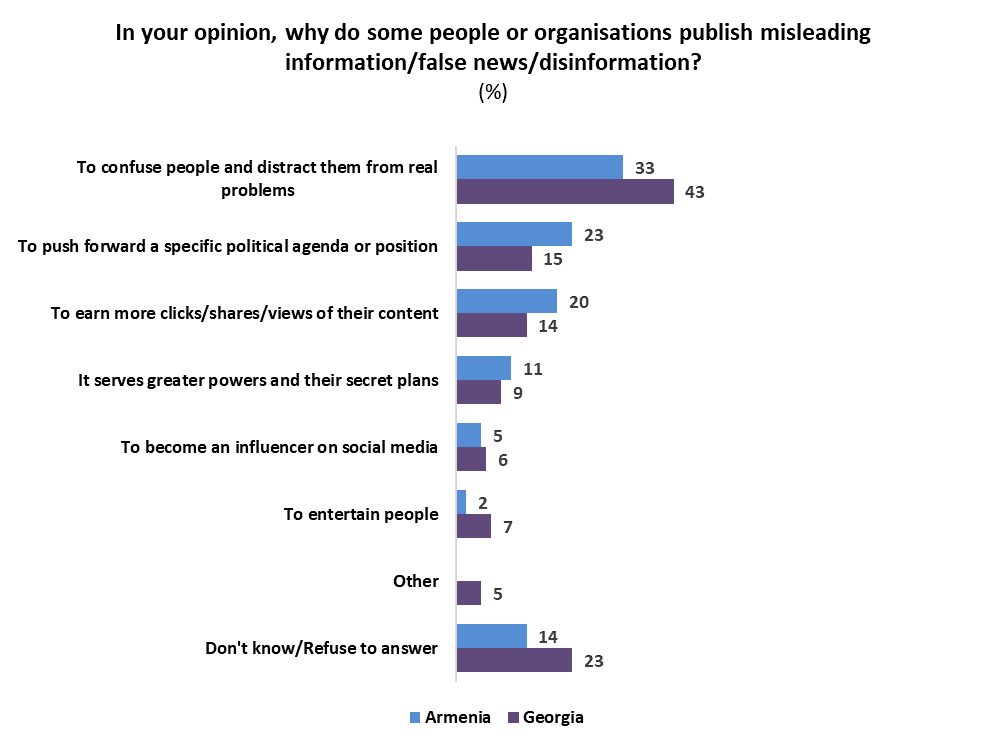
Most people in Armenia and Georgia are worried about what they perceive to be the negative effects of social media, and particularly disinformation. People in Armenia are more skeptical of the effects of social media and more worried about disinformation than people in Georgia.
The regression analysis used in this article included the following variables: age (18-34, 35-54, 55+), sex (male, female), settlement type (capital, other urban, rural), education level (tertiary or not), ethnicity in Georgia only (ethnic Georgian, ethnic minority), employment status (employed or not working), and a wealth index (a simple additive index of ownership of a number of durable goods within a household).
The views expressed in this article are the authors’ alone and do not necessarily reflect the views of CRRC Georgia or any related entity.
Read in Russian on Jnews.














